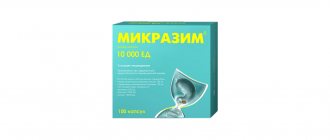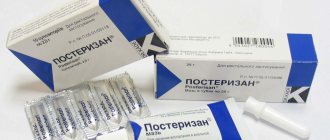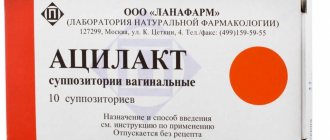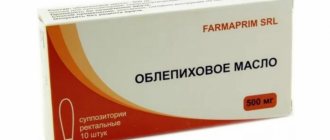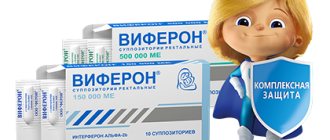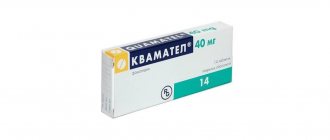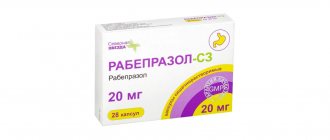- Characteristics, manufacturing
- What diseases are best treated with candles?
- The use of suppositories in gynecology
- How to use gynecological suppositories correctly
- Are there any contraindications for suppositories?
Suppositories are medications in the form of a capsule with a medicinal substance, coated with a shell. The drugs are intended for rectal or vaginal administration. In everyday life, such medicines are most often called “suppositories”. The suppository shell melts at body temperature, releasing the medicinal substance for further absorption.
Characteristics, manufacturing
Suppositories for rectal administration are cylindrical or cone-shaped with a diameter of up to 1.5 cm. The weight of one capsule is 1-4 g (for adults) and 0.5-1.5 g (for children). Standard weight is 3 g (may not be indicated on the package).
Vaginal suppositories are spherical or ovoid in shape. Gynecological suppositories are also available in the form of flat suppositories with a rounded end. The weight of such preparations is 1.5-6 g. If there is no indication of weight on the packaging, then the weight of one candle is 4 g.
Medicines are manufactured on lipophilic (based on fat and its derivatives) and hydrophilic (without fatty components, able to dissolve in water) bases.
To produce lipophilic candles, vegetable oils (cocoa), compounds of vegetable and animal fats, alloys of fats and wax, lanolin and paraffin are used.
The lipophilic base is made from medical gelatin with the addition of glycerin and polyethylene oxides.
The composition also includes excipients approved for use in pharmaceutical production: (emulsifiers, aerosil, citric acid, wool wax alcohols).
When checking the quality of suppositories, the following criteria are assessed:
- form;
- hardness;
- uniformity in the cut, absence of inclusions (air pockets are allowed).
To determine the average mass, 20 pieces are weighed on a scale with an accuracy of 0.01 g. With the correct manufacturing technique, the mass error will be no more than 5%.
Lipophilic suppositories should melt or completely deform within 15 minutes at a temperature not exceeding 37 degrees.
To check the solubility of hydrophilic suppositories, place one at the bottom of a vessel with 100 ml of liquid at a temperature of about 37 degrees. Every 5 minutes it is necessary to shake the vessel, creating a small “funnel”. A high-quality suppository will dissolve within an hour.
Instructions for use of Diclofenac suppositories
Suppositories are administered rectally (into the anus), starting with a daily dosage of 50-150 mg (for an adult). The maximum amount is 150 mg per 24 hours. It must be divided into 2 or 3 doses (1 candle each).
Children from 6 to 15 years old inclusive determine the daily dosage based on the ratio of 0.2-2 mg of active substance per 1 kg of body weight. If a child is diagnosed with rheumatoid arthritis, the maximum daily amount may be 3 mg per 1 kg of body weight.
What diseases are best treated with candles?
Many people prefer treatment with oral medications rather than suppositories, but the latter have a significant advantage: speed of absorption. The medicine does not need to travel the entire gastrointestinal tract to begin to act.
In what cases is treatment with suppositories most effective?
- For pain in the joints or back. Anti-inflammatory drugs are used and prescribed to adults. Suppositories act faster than injections and oral medications, so they can effectively cope with severe attacks of pain. Contraindications include stomach bleeding and ulcers. Not suitable for long-term therapy.
- To reduce fever during colds and viral diseases. Analgesics and antipyretic drugs in the form of suppositories are often prescribed to young children, since this method greatly simplifies taking the medicine. Rectal administration of antipyretics is also suitable for patients with vomiting.
- Constipation. The drugs simplify the process of defecation, but with prolonged use they become addictive.
- Haemorrhoids. Suppositories with local analgesics are used to relieve pain.
- Vomit. Suppositories are prescribed if the patient is unable to take medications orally.
- Fungal gynecological diseases. Vaginal suppositories are used. Some medications are available without a prescription and can be used to relieve itching, burning, and unusual discharge.
- Vaginitis. Antibiotics or antiparasitic medications are prescribed in the form of suppositories. These medications are available with a prescription.
- Menopause. Some medications that relieve vaginal dryness come in the form of suppositories. Some medications are available for free sale, others are available with a prescription.
Indications for use
Diclofenac suppositories are used to relieve pain and prevent inflammatory processes in the presence of the following pathologies:
- osteochondrosis;
- osteoarthritis;
- rheumatism;
- arthritis;
- spondyloarthritis;
- sciatica;
- migraine;
- lovemago;
- gout;
- algodismenorrhea;
- complications after injuries;
- complications after operations;
- ENT diseases (for example, laryngitis, otitis media).
Typically, the drug is taken in the form of tablets or ointments. But if oral administration is not possible (for example, in a weakened patient), the doctor prescribes rectal suppositories. This form of therapy has several advantages:
- the gastric mucosa is not damaged;
- the likelihood of developing muscle necrosis decreases;
- no suppuration forms at the injection site;
- more comfortable administration compared to injection.
Suppositories are used in combination treatment. For example, during the day the patient takes pills or receives an injection. At night, for a better therapeutic effect, suppositories are administered.
Suppositories are also used to treat prostatitis. In this case, the active substance does not enter the liver, but almost 100% goes to the affected prostate cells, which improves treatment results.
Another direction is in gynecology. Suppositories are placed in case of acute pain caused by inflammation of the ovaries or algomenorrhea. In this case, suppositories are inserted into the vagina, they dissolve quite quickly and actively affect the affected tissue.
The use of suppositories in gynecology
Vaginal and rectal suppositories are used to treat gynecological diseases. Medicines have a wide spectrum of action and have a minimum of side effects. Absorption into the blood occurs within an hour.
What groups of drugs are used in gynecology:
- Anti-inflammatory. They deliver the medicinal component to the site of inflammation; preparations with natural ingredients are suitable for adolescents and pregnant women. Prescribed for the treatment of a range of diseases, including vaginitis, urethritis, erosions.
- Antibacterial. The composition includes antiseptic and antimicrobial components. They are prescribed both for the treatment of diseases caused by pathogenic microorganisms and for their prevention.
- Analgesics. They contain painkillers, anti-inflammatory, as well as antiviral or antifungal components. Prescribed for cystitis, painful periods, in the postoperative period (including after cesarean section).
- Restorative. Prescribed for disturbances in the vaginal microflora and a decrease in natural protective properties, after antibacterial therapy and before gynecological operations.
- Hormonal. They compensate for the lack of estrogen and are prescribed for severe symptoms of menopause, in the postoperative period, for the treatment of genitourinary disorders caused by hormonal imbalance.
- Antifungal. Prescribed for the treatment and prevention of diseases caused by pathogenic microorganisms.
- Antiviral. Used to treat herpes, chlamydia, recurrent candidiasis and other viral diseases.
Despite the fact that some drugs can be purchased without a prescription, self-prescription of suppositories can lead to worsening symptoms. Before starting treatment, you must consult a doctor to confirm the diagnosis and select the most appropriate medications.
Local treatment of hemorrhoids: features and effectiveness of therapy
Local therapy is a popular alternative to minimally invasive methods of treating hemorrhoids, which does not eliminate the cause of the disease, but quickly relieves the main symptoms of its manifestation: itching, burning, swelling of the mucous membrane, pain. They are applied locally and have a direct effect on pathologically altered veins. The preparations contain biologically active substances based on plant components that have a venotonic and anti-inflammatory effect.
Inflammation of hemorrhoidal “bumps” can be treated with ointments, gels and rectal suppositories. When choosing a product, you should not rely on advertising, but consult in advance with your doctor or pharmacist at the pharmacy. Self-administration of drugs should not last more than 5-7 days, especially if all the symptoms of the disease persist.
Suppositories for hemorrhoids: benefits of use
Suppositories or suppositories are an acceptable form of therapy for rectal varicose veins. They are a cone-shaped solid substance that melts and releases its active substances when it enters the body. The components of the suppository are quickly absorbed into the blood and have an effective therapeutic effect: they relieve pain, inflammation, itching, and promote the regeneration of damaged anal tissue.
Treating nodes with suppositories is possible only for external hemorrhoids. The instructions for the medicine are quite simple. They are administered rectally with the pointed end up, after which you need to wait until the substance is completely dissolved while lying on your stomach. Residual oily fluid may leak out of the anus when moving, so women should use a sanitary pad to avoid ruining their underwear. Before the procedure, it is necessary to clean the perianal area and anus with a soap solution.
Advantages of treating the disease with suppositories:
- It is quite convenient to treat the disease without additional preparation;
- Almost complete absence of discomfort and side effects;
- Rapid absorption of active substances and relief of painful symptoms;
- Wide selection of medicines.
In men and women, the course of the disease has its own characteristics. Rectal suppositories can treat symptoms in various manifestations and are gentle on the rectal mucosa.
Therapeutic effect of rectal suppositories
The therapeutic effect of suppositories has been proven by numerous clinical studies and positive patient reviews. Among the most beneficial manifestations of the drug it is worth noting:
- Anesthesia of the problem area - treatment of severe pain with the help of components such as lidocaine and novocaine;
- Elimination of thrombosis of inflamed nodes - this effect is achieved through anticoagulants, which prevent active blood clotting;
- Relieving inflammation using non-steroidal and hormonal agents;
- Stopping bleeding from the anus - in this case, the symptom must be treated with the help of coagulants that activate blood clotting;
- Strengthening the venous wall - modern suppositories perfectly combine the treatment of symptoms and a venotonic effect.
How to use gynecological suppositories correctly
Before use, you must read the instructions: some gynecological suppositories are intended for rectal rather than vaginal administration. These medications should not be used vaginally.
Typically, medications in the form of suppositories are used once a day. It is most convenient to do this before going to bed, since after inserting the suppository you need to be in a lying position for some time.
Rules for administering suppositories:
- do the procedure after visiting the toilet;
- pre-wash the external genitalia with warm water without using intimate hygiene products;
- introduce the suppository slowly and as deeply as possible;
- lie down for 20 minutes so that the medicine is completely dissolved and absorbed.
The shell of the candles leaks out after melting, so you can use a panty liner to protect your laundry. Remains of the melted shell can be easily removed from the skin with water or a sanitary napkin.
Contraindications and side effects
Suppositories and other forms of the drug are not used when the patient has certain contraindications:
- individual intolerance to diclofenac or auxiliary components;
- proctitis;
- severe disorders of the kidneys, liver, heart.
Taking suppositories has virtually no contraindications, since the medicine is administered externally, without entering the stomach and other organs of the gastrointestinal tract. Therefore, this form of the drug, along with ointments and gel, can be considered the safest. Suppositories have practically no side effects. If the dosage is observed, they do not pose a health threat.
Anti-inflammatory suppositories for intestinal diseases
Anti-inflammatory rectal suppositories for the treatment of hemorrhoids
The main active component of anti-inflammatory suppositories are broad-spectrum antibacterial drugs. They allow you to destroy pathogens and allow you to achieve good results in treatment. For colpitis and other inflammatory processes in the intestines, the following types of suppositories can be prescribed:
- Hexicon. This is an anti-inflammatory drug, the active component of which is chlorhexidine bigluconate, treatment takes 7-10 days. The dosage is determined by the doctor, usually it is 1 suppository per day.
- Polygynax is a drug that includes several active components: neomycin, nystatin, polymyxin B, the course of treatment can take up to 2 weeks, one suppository is prescribed in the morning and in the evening.
- Meratin-combi is also a complex drug; in addition to the above components, it contains prednisolone. The course of treatment is 10 days, the standard dosage is 1 suppository once a day.
- Mikozhinax is a drug whose active ingredients are metronidazole, chloramphenicol, and dexamethasone. Treatment takes up to 10 days, dosage – 1-2 suppositories per day.
- Betadine is an anti-inflammatory drug whose active components include iodine. The course of treatment reaches 12 days, dosage – 1-2 suppositories per day.
These are just some of the drugs used for inflammatory processes in the intestines. All of the listed remedies have a number of contraindications, so they are selected individually by a specialist. The dosage depends on the patient’s age and many other parameters, so it should also be selected only by the attending physician.
Mesalazine, pregnancy and breastfeeding
In the article “Frequently Asked Questions on IBD,” we looked at the problem of conception, pregnancy and delivery in ulcerative colitis and Crohn’s disease.
These diagnoses are not a death sentence at all; patients with IBD can become pregnant and give birth. At the same time, the patient may need to continue taking mesalazine even during pregnancy.
The effect of mesalazine on conception
There is no data on the effect of mesalazine on the ability of men to conceive (unlike, for example, sulfasalazine).
Anti-inflammatory suppositories for hemorrhoids
Anti-inflammatory rectal suppositories: Diclofenac
Antihemorrhoidal suppositories are made on the basis of natural or synthetic components: in the first case, natural antiseptics are used in homeopathic doses. This can be calendula, sea buckthorn oil, various plant extracts, as well as propolis.
